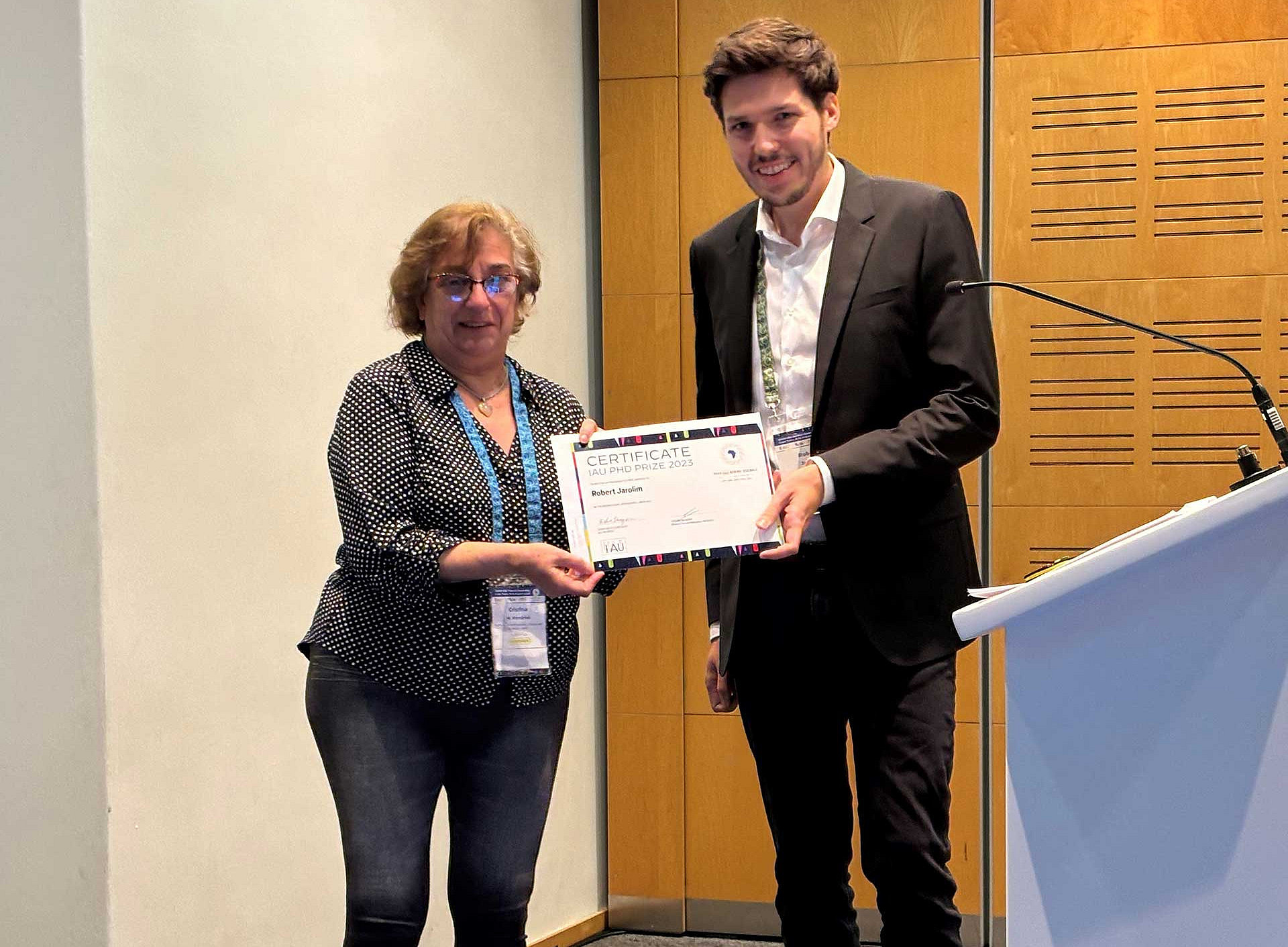Sonneneruptionen sind spektakuläre Ausbrüche von Materie sowie Strahlung und können massive Auswirkungen auf die Erde haben. Sie stören etwa Satelliten und Kommunikationssysteme. Bessere Vorhersagen des Weltraumwetters sind also gefragt. Robert Jarolim bedient sich der künstlichen Intelligenz, um Beobachtungen der Sonne besser interpretieren zu können und daraus genauere Prognosen treffen zu können. In seiner Dissertation bzw. PhD-Arbeit, die Jarolim an der Uni Graz in der Forschungsgruppe rund um Astrophysikerin Astrid Veronig verfasst hat, hat er die Möglichkeiten beschrieben.
„Seine Arbeiten sind für das Verständnis der physikalischen Probleme, die den Sonnenphänomenen zugrunde liegen, relevant“, begründete Cristina Mandrini, Präsidentin der Sektion Sonne und Heliosphäre der Internationalen Astronomischen Union (IAU), die Auszeichnung. Diese wurde Robert Jarolim im Rahmen der diesjährigen Tagung der IAU in Kapstadt (Südafrika) verliehen.
In Turin (Italien) folgt im kommenden September der nächste Streich, wenn der Wissenschaftler von der European Physical Society / Solar Physics Division den Preis für die beste PhD-Arbeit erhält.
Aktuell befindet sich Robert Jarolim am anerkannten High Altitude Observatory in Boulder, Colorado (USA). Er wurde für eine NASA Jack-Eddy Fellowship ausgewählt, eines der begehrtesten und prestigeträchtigsten Forschungsstipendien im Bereich der Sonnenphysik.
„Ich setze dort meine Forschung fort, die ich an der Uni Graz gestartet habe“, schildert Jarolim. „Von der Uni Graz bringe ich meine Expertise im Bereich der Sonnenphysik und künstlicher Intelligenz ein.“ In einem internationalen Team will er bis 2025 neue Methoden entwickeln, um den Aufbau und die Dynamik des Sonnenmagnetfelds besser zu verstehen: „Dabei verwenden wir neuronale Netzwerke zur Simulation der Sonnenatmosphäre.“
